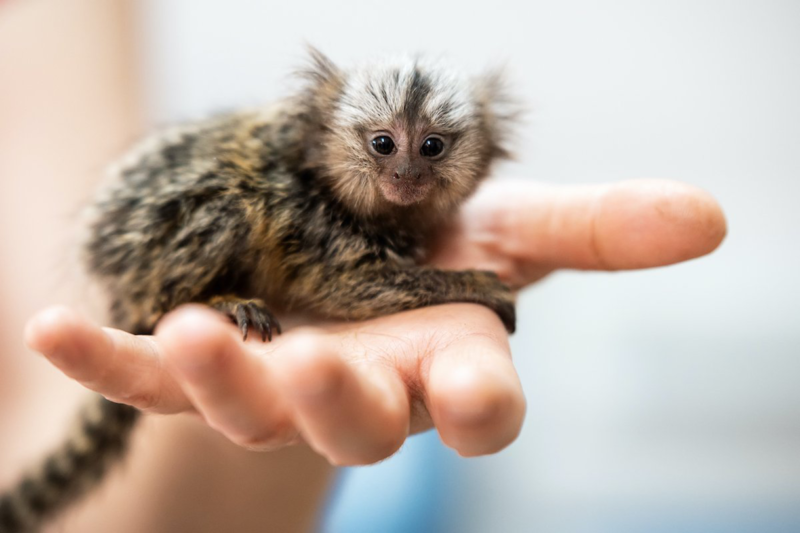
Exotic pets, from reptiles and birds to unique mammals, have become increasingly popular. These unusual animals can be fascinating companions, but they also come with unique challenges. Understanding the pros and cons of owning an exotic pet can help you decide if one of these special animals is right for you.
1. What Are Exotic Pets?
Exotic pets are animals that are not commonly kept as household pets. This category includes reptiles like snakes and lizards, mammals like sugar gliders and ferrets, and even birds and amphibians. Exotic pets often require special care, unique habitats, and diets tailored to their species.
2. Pros of Owning an Exotic Pet
Owning an exotic pet can be an exciting and rewarding experience, and it offers several unique benefits.
Benefits of Exotic Pets:
- Unique Companionship: Exotic pets provide companionship that’s different from traditional pets, offering a new way to connect with animals.
- Educational Experience: Caring for an exotic pet teaches owners about animal behavior, biology, and environmental needs, which can be rewarding and enlightening.
- Allergy-Friendly: Some exotic pets, like reptiles and amphibians, are less likely to trigger allergies than furred animals.
- Lower Maintenance (in Some Cases): Certain exotic pets, such as reptiles, do not require the daily attention that cats and dogs need, which can make them more suitable for busy lifestyles.
3. Cons of Owning an Exotic Pet
While exotic pets have unique appeal, they also come with several challenges. Prospective owners should consider these factors carefully.
Challenges of Exotic Pets:
- Specialized Care: Many exotic pets require specific diets, environmental conditions, and habitats that can be challenging to maintain.
- Expensive Set-Up and Maintenance: The cost of cages, heating systems, UV lighting, and other specialized equipment can be high.
- Limited Veterinary Care: Not all veterinarians are equipped to care for exotic animals, so finding a specialist can be challenging and costly.
- Potential Legal Restrictions: Some regions have strict laws regulating exotic pet ownership, and certain animals may be prohibited.
4. Common Types of Exotic Pets
Here’s a look at some popular types of exotic pets, along with their unique care requirements and characteristics.
Popular Exotic Pets:
- Reptiles (Snakes, Lizards, Turtles): These animals require controlled environments, including specific temperatures, humidity levels, and light cycles.
- Birds (Parrots, Cockatiels): Birds are social animals that require interaction, mental stimulation, and large cages with perches and toys.
- Amphibians (Frogs, Salamanders): These animals require high humidity and clean water environments and are more suited for viewing than handling.
- Small Mammals (Sugar Gliders, Hedgehogs): Small mammals need specialized diets and habitats, and some, like sugar gliders, are highly social and require a lot of attention.
5. Legal and Ethical Considerations
Before acquiring an exotic pet, it’s important to research the legal and ethical implications. Some exotic animals are illegal to own in certain areas, and ethical considerations include the origin of the animal and its role in the wild.
Considerations:
- Check Local Regulations: Verify if owning a particular exotic pet is legal in your area and understand any permit requirements.
- Source Responsibly: Choose pets from reputable breeders or adoption centers rather than animals taken from the wild, as wild capture can harm ecosystems.
- Consider Long-Term Care: Some exotic animals have long lifespans or complex care needs, so be prepared for a long-term commitment.
6. Time and Effort Required for Exotic Pets
Exotic pets often require a level of commitment beyond traditional pets. Understanding the time, energy, and resources required for proper care is essential for responsible ownership.
Time Commitment:
- Daily Care: Many exotic pets need daily feeding, habitat cleaning, and monitoring of temperature and humidity levels.
- Enrichment and Socialization: Social species like parrots and sugar gliders require regular interaction and mental stimulation to stay healthy and happy.
- Health Monitoring: Exotic animals may not show illness as clearly as traditional pets, so regular health checks are crucial.
7. Health and Veterinary Care
Finding a veterinarian with expertise in exotic animal care is critical. Routine health care, such as annual check-ups and preventative treatments, should be factored into the decision.
Tips for Finding Exotic Pet Care:
- Research Local Vets: Find a vet experienced with exotic animals and establish a relationship before health issues arise.
- Budget for Emergencies: Veterinary care for exotic animals can be costly, so it’s wise to budget for unexpected medical needs.
- Monitor Your Pet’s Health: Familiarize yourself with signs of illness specific to your pet species, as many exotic pets hide symptoms.
8. Interaction and Bonding with Exotic Pets
Some exotic pets enjoy interaction with their owners, while others are more suited for observation. Understanding your pet’s needs and personality can enhance your bond and ensure a positive experience.
Bonding Tips:
- Respect Boundaries: Exotic animals may not appreciate handling in the same way as traditional pets, so let them guide interactions.
- Provide Enrichment: Offer toys, foraging opportunities, and mental stimulation appropriate for the species.
- Be Patient: Building trust with an exotic pet takes time, especially if they are naturally shy or independent.
Conclusion
Owning an exotic pet can be a fulfilling experience for the right person. However, these unique animals require special attention, time, and resources. By weighing the pros and cons and thoroughly researching the needs of the species you’re interested in, you can make an informed decision about whether an exotic pet is a suitable addition to your household.








